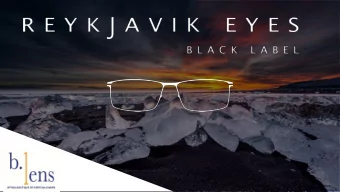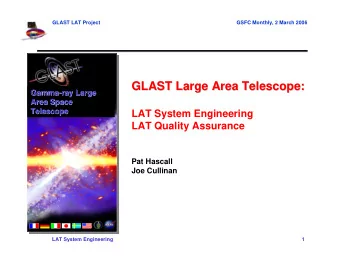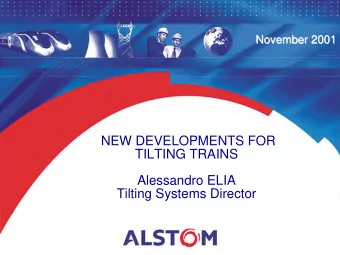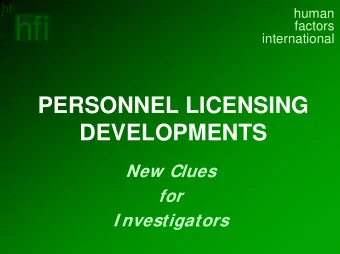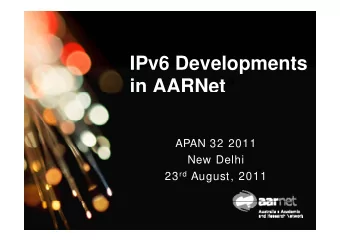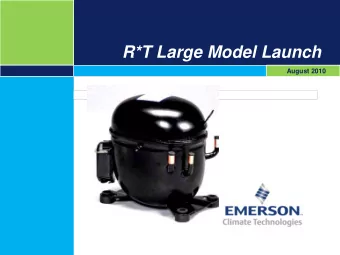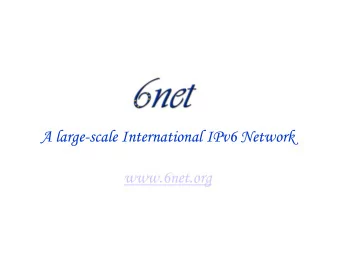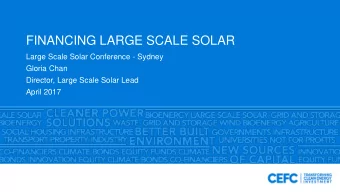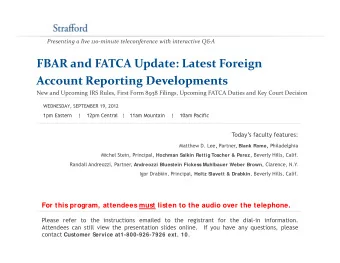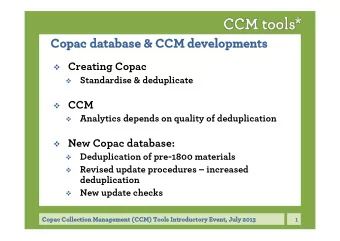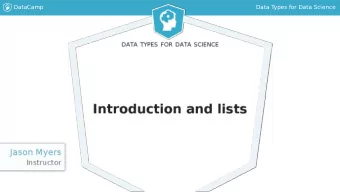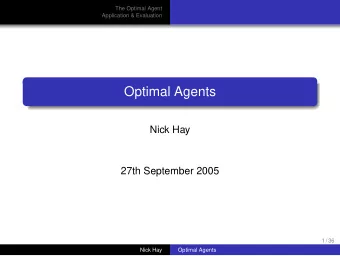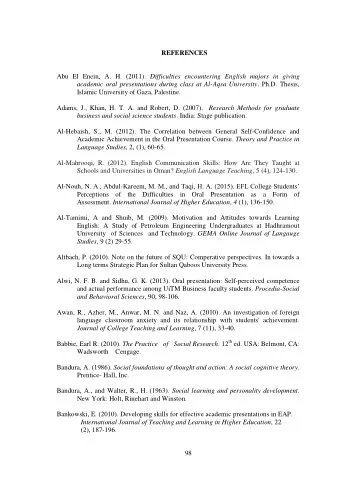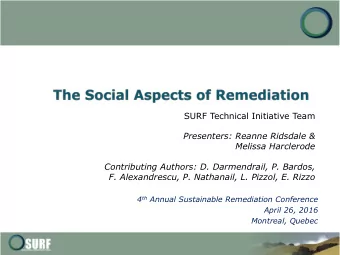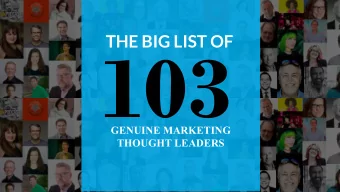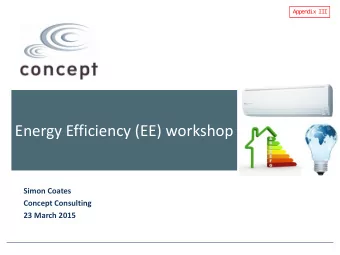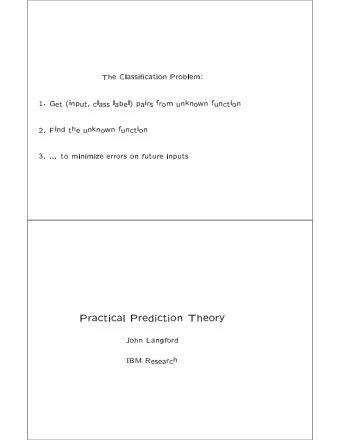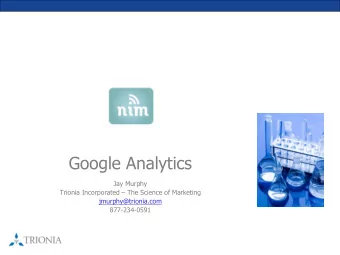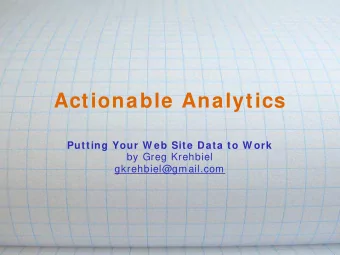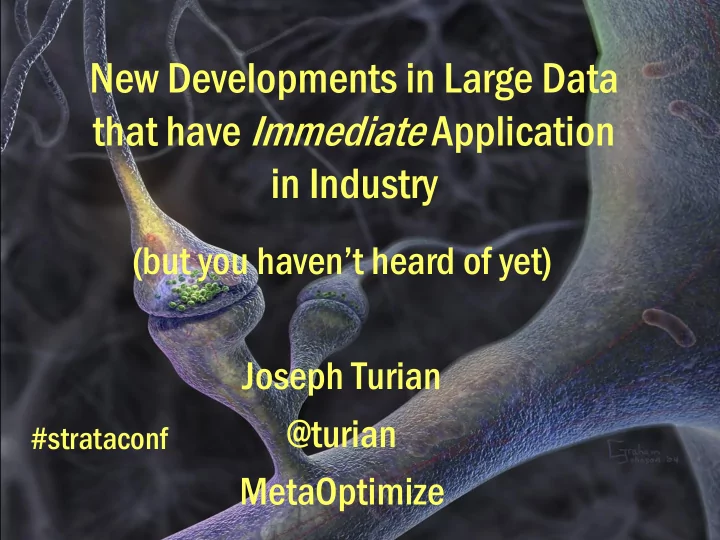
New Developments in Large Data that have Immediate Application in - PowerPoint PPT Presentation
New Developments in Large Data that have Immediate Application in Industry (but you havent heard of yet) Joseph Turian @turian #strataconf MetaOptimize perhaps you should close your laptops How do you get a competitive advantage with
New Developments in Large Data that have Immediate Application in Industry (but you haven’t heard of yet) Joseph Turian @turian #strataconf MetaOptimize
perhaps you should close your laptops
How do you get a competitive advantage with data?
How do you get a competitive advantage with data? • More data
How do you get a competitive advantage with data? • More data • Better algorithms
When big data gives diminishing returns, you need better algorithms
When big data gives diminishing returns, you need better algorithms @turian #strataconf
When should you use better algorithms?
When should you use better algorithms? • If they are really cool algorithms
When should you use better algorithms? • If they are really cool algorithms
When should you use better algorithms? • If they are really cool algorithms • If you have a lot of time on your hands
When should you use better algorithms? • If they are really cool algorithms • If you have a lot of time on your hands
Only use better algorithms if they will qualitatively improve your product
Only use better algorithms if they will qualitatively improve your product @turian #strataconf
Who am I?
Who am I? • Engineer with 20 years coding experience • Ph.D. 10 yrs exp in large-scale ML + NLP
What is MetaOptimize?
What is MetaOptimize? optimizing the process of
What is MetaOptimize? optimizing the process of optimizing the process of
What is MetaOptimize? optimizing the process of optimizing the process of optimizing the process of optimizing the process of optimizing the process of optimizing the process of optimizing the process of optimizing the process of optimizing the process
What is MetaOptimize? • Consultancy on: • Large scale ML + NLP • Well-engineered solutions
“Both NLP and ML have a lot of folk wisdom about what works and what doesn't. [This site] is crucial for sharing this collective knowledge.” - @aria42 http://metaoptimize.com/qa/
Outline • Deep Learning – Semantic Hashing • Graph parallelism • Unsupervised semantic parsing
Outline • Deep Learning – Semantic Hashing • Graph parallelism • Unsupervised semantic parsing
Opportunity with Deep Learning • Machine learning that’s – Large-scale (>1B examples) – Can use all sorts of data – General purpose – Highly accurate
Deep Learning
Deep Learning • Artificial intelligence???
Natural Intelligence
Natural Intelligence Works!
Artificial Intelligence
Artificial Intelligence • Still far from the goal! • Why?
Where does intelligence come from?
Intelligence comes from knowledge
How can a machine get knowledge? Human input
NO!
Intelligence comes from knowledge. Knowledge comes from learning.
Intelligence comes from knowledge. Knowledge comes from learning. @turian #strataconf
Statistical Learning • New multi- disciplinary field • Numerous applications
Memorize? Generalize? or • Mathematically: • Easy for machines fundamentally difficult • Harder for humans • Easier for humans
How do we build a learning machine?
Deep learning architecture Output: is bob? … Highest-level features: Faces … Abstract features: … Shapes Primitive features: … Edges Input: Raw pixels …
Shallow learning architecture … … …
Why deep architectures?
subsubsub2 subsubsub1 subsubsub3 subsub1 subsub2 subsub3 sub1 sub2 sub3 main “Deep” computer program
subroutine1 includes subroutine2 includes subsub1 code and subsub2 code and subsub2 code and subsub3 code and subsubsub1 code subsubsub3 code and … main “Shallow” computer program
“Deep” circuit
“Shallow” circuit output … 2 n … 1 2 3 n input
Insufficient Depth Sufficient cient depth th = Insuffi sufficient ient depth th = Comp ompact act re repre resenta sentation tion May y re requ quire ire expo pone nenti ntial al-si size e arc rchitec hitectur ture … … … … 2 n 1 2 3 … O(n) … … 1 2 3 n 1 2 3 n
What’s wrong with a fat architecture?
Overfitting! bad generalization
Occam’s Razor
Other motivations for deep architectures?
Learning Brains • 10 11 neurons, 10 14 synapses • Complex neural network • Learning: modify synapses
Visual System
Deep Architecture in the Brain Higher level visual Area V4 abstractions Primitive shape Area V2 detectors Area V1 Edge detectors pixels Retina
Deep architectures are Awesome!!! • Because they’re compact but…
Why not deep architectures? • How do we train them?
Before 2006 Failure of deep architectures
Mid 2006 Breakthrough!
Signal-to-noise ratio • More signal!
Deep training tricks • Unsupervised learning
Deep training tricks • Create one layer of features at a time
Bengio Montréal Toronto Hinton Le Cun New York
(I did my postdoc here) Bengio Montréal Toronto Hinton Le Cun New York
Deep learning a success! Since 2006 Deep learning breaks records in: • Handwritten character recognition • Component of winning NetFlix entry • Language modeling Interest in deep learning: • NSF and DARPA
Opportunity with Deep Learning • Machine learning that’s – Large-scale (>1B examples) – Can use all sorts of data – General purpose – Highly accurate
Outline • Deep Learning – Semantic Hashing • Graph parallelism • Unsupervised semantic parsing
Opportunity with Semantic Hashing • Fast semantic search
What’s wrong with keyword search?
Keyword search • Search for tweets on “Hadoop”
Keyword search • Search for tweets on “Hadoop” • Misses the following tweets: – “Just started using HBase” – “I really like Amazon Elastic Map - Reduce”
What’s wrong with keyword search?
What’s wrong with keyword search? Misses relevant results!
Standard search: Inverted Index
Hashing • Another technique for search
Hashing • FAST!
Hashing • Compact! • Without hashing: – Billions of images => 40 TB • With 64-bit hashing: – Billions of images => 8GB
“Dumb” hashing • Typically no learning, not data-driven • Examples: – Random Projections – Count-Min Sketch – Bloom filters – Locality Sensitive Hashing
“Smart” Hashing • As fast as “dumb” hashing • Data-driven • Examples: – Semantic Hashing (2007) – Kulis (2009) – Kumar, Wang, Chang (2010) – Etc.
Semantic Hashing = ??
Semantic Hashing = Smart hashing + deep learning Salakhutdinov + Hinton (2007)
Semantic Hashing architecture
Semantic Hashing architecture LSA/LSI, LDA TF*IDF
Opportunity with Semantic Hashing Semantic search that is: • General purpose • Fast • Compact
Opportunity with Semantic Hashing Semantic search that is: • General purpose – Search text, images, videos, audio, etc. • Fast • Compact
Opportunity with Semantic Hashing Semantic search that is: • General purpose • Fast – Indexing: few weeks for 1B docs, using 100 cores – Retrieval: 3.6 ms for 1 million docs, scales sublinearly • Compact
Opportunity with Semantic Hashing Semantic search that is: • General purpose • Fast • Compact – 1B docs, 30-bit hashes => 4GB – 1B images, 64-bit hashes => 8GB (vs. 40 TB naïve)
Prediction Smart hashing will revolutionize search
Prediction Smart hashing will revolutionize search @turian #strataconf
Outline • Deep Learning – Semantic Hashing • Graph parallelism • Unsupervised semantic parsing
The rise of Graph stores • Neo4J, HyperGraphDB, InfiniteGraph, InfoGrid, AllegroGraph, sones, DEX, FlockDB, OrientDB, VertexDB
Opportunity with graph-based parallelism • Scale sophisticated ML algorithms • Larger data sets • Higher accuracy
Useful machine learning algorithms • Gibbs sampling • Matrix factorization • EM • Lasso • Etc. Have graph-like data dependencies
Machine learning in Map-Reduce
Machine learning in Map-Reduce
Machine learning in Map-Reduce Map-Abuse -Carlos Guestrin
There are too many graph-like dependencies in many ML algorithms
Parallel abstractions for graph operations • Pregel (Malewicz et al, 2009, 2010) – Erlang implementation called Phoebus • GraphLab (Low et al, 2010) – Source code available
Recommend
More recommend
Explore More Topics
Stay informed with curated content and fresh updates.
